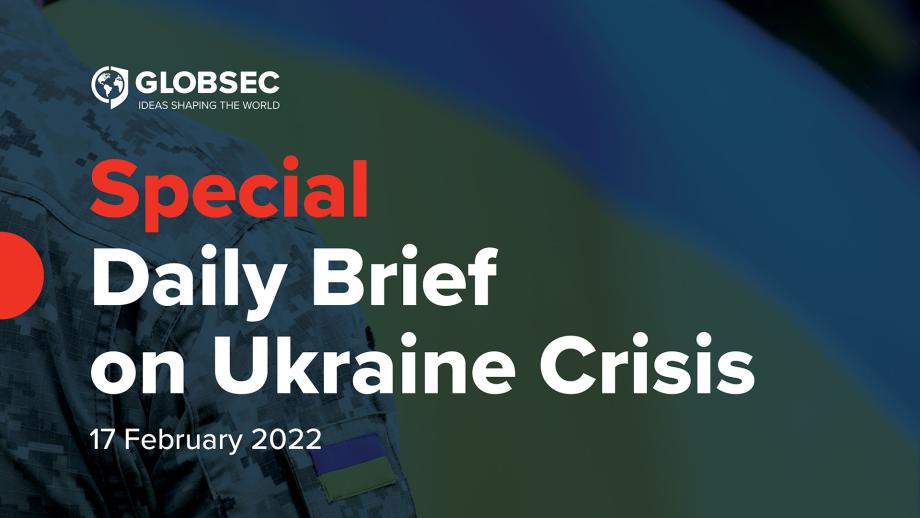Special Daily Brief on Ukraine: We don't believe what we hear, we believe what we see

Russian Withdrawal
Combat training exercises have ended, and some Russian troops will be withdrawing from the Ukrainian border. Despite the withdrawal of some troops, combat exercises and drills remain ongoing in Belarus according to the Russian Defence Ministry spokesman. The Ministry is still denying any accusations of planning an invasion into Ukraine. In response, Ukraine’s Foreign Minister Dmytro Kuleba asserted that he will believe troops have been withdrawn once he sees conclusive evidence. Both Ukraine and Russia claimed the moment as a public relation victory in their ongoing stand-off. On one side Russia accusing the West of warmongering and Ukraine claiming victory for standing eye-to-eye with Russian combat troops on its border and not blinking. At the same time, the US Secretary of State, speaking in an interview with MSNBC, stated that one day after the declared withdrawal date, no evidence of this has materialized.
Donbas Luhansk special status
One of the demands that precipitated the current Ukraine-Russia tensions is the desire for both the regions of Donbas and Luhansk to receive special status that dates back to the 2015 aftermath of the Debaltseve battle that led directly to the second Minsk agreement. Regarding the two regions both Moscow and Kyiv hold opposing perspectives. Aside from being a contentious issue, the granting or non-granting of special status could lead to full autonomy for these regions. Moreover, with Russian presence lingering in these two regions and the emergence of over 700,000 new Russian passport holders since 2015 it is doubtful if credible free elections could be observed by the OSCE as requested by Ukraine. Both European leaders, French President Macron and German Chancellor Scholz discussed different proposals with President Putin as well as with President Zelensky in Kyiv in the past week. This led to the Kyiv Independent media outlet to accuse both leaders of siding with the Russian spin on the Minsk agreement. At the same time, the Russian Parliament voted to send a proposal to President Putin to recognise the two breakaway regions in eastern Ukraine as sovereign and independent states. If accepted by the Russian President, it would amount to a complete rejection of the second Minsk agreement. This proposal was swiftly condemned by the US government.
Talking tough
Mirroring Ann Applebaum’s piece published in the Atlantic, on how to talk tough to Russia was Mikulas Dzurinda’s talk to Slovak daily SME, where he criticized the Slovak government for its dithering and indecisiveness. As if to underline his words of indecisive government, the Slovakian Parliamentary Committee on Foreign Affairs heard from both Russian Ambassador Igor Bratchikov and Ukrainian Ambassador Jurij Mushka today in preparation for a parliamentary declaration on the current situation in Ukraine. Both Ambassadors spoke at length about their respective countries’ views. Ambassador Bratchikov declared that all talk of a Russian invasion amounted to fearmongering and induced hysteria. In contrast, Ambassador Mushka reiterated Russia’s presence on Ukraine’s border as a legitimate threat. There were two declarations prepared in advance with one condemning Russian aggression and declaring support to Ukraine, while the other version declared first and foremost the desire for peaceful relations among nations, without specifically referring to any particular situation. The Committee selected the wording of the second proposal, by one vote, without condemning any country. The outcome of the vote dashed hopes of Ukraine securing a supportive endorsement from its neighbour to the west.
